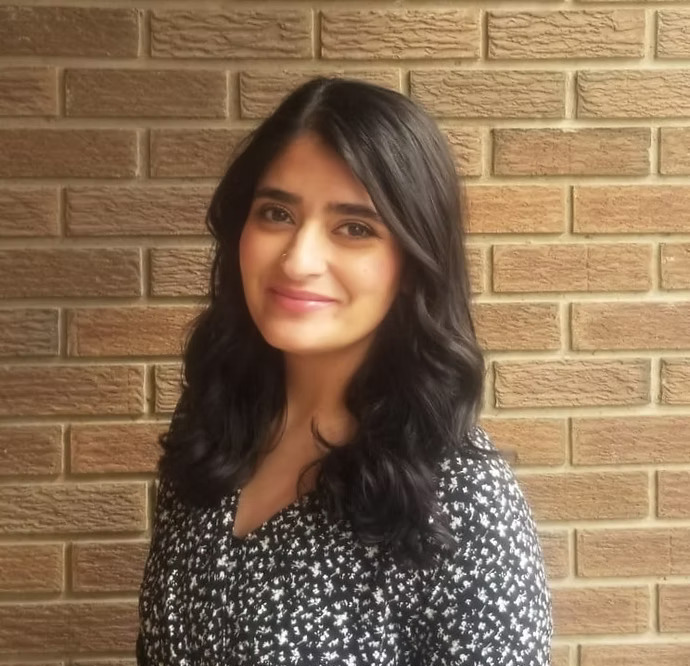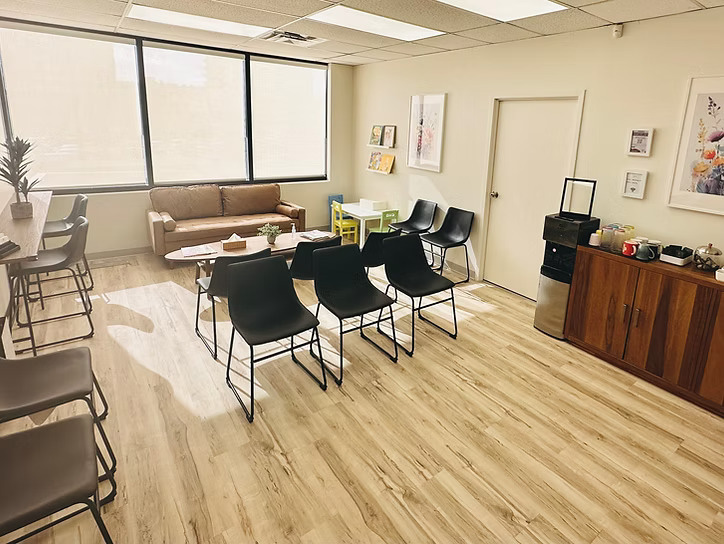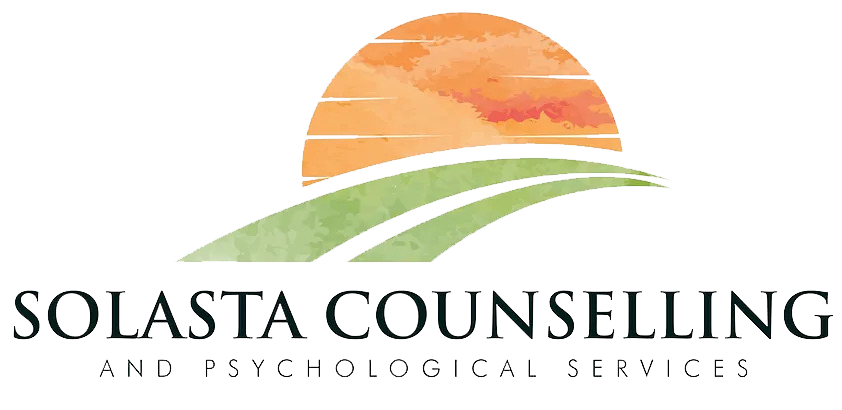Grief and Loss Therapy in Calgary
Grief is unique to each person, and we’re here to guide you through it at your own pace.

What is Grief and How Can Therapy Help?
Grief is the emotional pain you feel after experiencing a loss, and it often involves feelings of sadness, anger, guilt, and confusion. Loss can come in many forms, such as the death of a loved one, a breakup, a miscarriage, the loss of a job, or even changes in your physical health.
“Why do I feel overwhelmed by grief?”
Grief is not a one-time event but a process that unfolds over time. Therapy can help you understand your grief, provide strategies to manage overwhelming emotions, and help you find hope and meaning in the midst of your pain.
Why Should I Seek Therapy for Grief and Loss?
Therapy for grief helps individuals process their emotions in a healthy and supportive environment.
A therapist can guide you in understanding your feelings, addressing unresolved issues, and working through the stages of grief, ultimately allowing you to begin healing and adjusting to life after loss.

Types of Grief We Address
Grieving is a deeply personal experience, and each individual’s journey is unique.

We help clients through various forms of grief, including loss of a loved one, a relationship breakdown, or life transitions. Our therapists tailor their approach to meet your specific needs during this challenging time.
Death of a Loved One
The death of a close friend or family member can leave you feeling isolated, confused, and overwhelmed with sadness.
“How can therapy help after a loved one dies?”
Grief therapy can help you navigate the emotional rollercoaster of mourning, express your feelings in a safe space, and process the pain of loss in a healthy way.
Anticipatory Grief
Anticipatory grief occurs when you experience grief before a loss, such as when a loved one is terminally ill.
“What is anticipatory grief and how can therapy help?”
Therapy helps individuals cope with the emotional challenges of knowing that a loved one’s life is ending and allows them to process feelings of sadness, fear, and uncertainty.
Loss of a Pet
The loss of a pet can be just as painful as losing a family member.
“Why does losing a pet hurt so much?”
Pets offer unconditional love and companionship, and their loss can trigger deep feelings of grief. Therapy can help individuals process this specific type of loss and find healthy ways to heal.
Divorce or Breakup
The end of a significant relationship, whether through divorce or breakup, can cause intense feelings of grief and loss of identity.
“How can therapy help me cope with the end of a relationship?”
Therapy helps individuals navigate the emotional fallout of a breakup, rebuild self-esteem, and rediscover a sense of purpose moving forward.
Miscarriage or Stillbirth
The loss of a pregnancy can be deeply traumatic and isolating.
“How can therapy help with the loss of a pregnancy?”
Grief therapy helps individuals and couples process their emotions surrounding miscarriage, stillbirth, or infertility, providing space to mourn the loss of a child and heal from this profound grief.
Loss of Health or Function
When an individual faces a significant loss in their physical health, such as a serious illness or disability, it can feel like a loss of identity and future potential.
“How can therapy help if I’m grieving my health?”
Therapy helps individuals process feelings of loss related to their health and adjust to new realities, building coping strategies to help with the emotional challenges.
Grief from Major Life Changes
Grief can also be experienced during major life transitions, such as moving, retirement, or changing careers.
“Can I grieve a life transition?”
Yes, even positive changes can trigger grief as you let go of what once was and adjust to a new phase of life. Therapy helps individuals cope with these transitions and process the accompanying feelings of loss.
Benefits of Grief and Loss Therapy
Grief and loss therapy can provide many benefits, supporting individuals as they work through the emotional and psychological aspects of mourning.

Processing and Expressing Emotions
Grief therapy provides a safe and non-judgemental space to express the full range of emotions you may be experiencing, from sadness and anger to guilt and even relief.
“What if I can’t stop crying or feel overwhelmed by my emotions?”
A therapist can help you process these feelings and offer guidance on how to manage intense emotions in a healthy way.
Navigating the Stages of Grief
The grieving process often involves several stages, including denial, anger, bargaining, depression, and acceptance.
“What are the stages of grief and how can therapy help me through them?”
Therapy helps you understand and work through these stages, guiding you toward acceptance and emotional healing at your own pace.
Building Coping Skills
Grief can often feel paralyzing, making it difficult to move forward.
“How can therapy help me get through the day after a loss?”
Therapy offers practical tools and coping strategies to manage daily challenges, such as mindfulness exercises, relaxation techniques, and cognitive reframing.
Healing from Complicated or Delayed Grief
Sometimes, grief becomes complicated or delayed, meaning it doesn’t resolve as expected or lingers for a long time.
“What if I can’t move on from my grief?”
Therapy can help address complicated grief, allowing you to process emotions that might have been repressed or unresolved, and facilitating long-term healing.
Creating Meaning and Moving Forward
While grief is painful, therapy can help you find meaning in the loss and integrate it into your life.
“How can I move forward after loss?”
A therapist helps you explore ways to honor the memory of the person or thing you’ve lost, create new goals, and embrace your future.
Improving Relationships and Communication
Grief can strain relationships, and therapy helps improve communication with those around you.
“Will therapy help me improve relationships while grieving?”
Yes, grief therapy can support better communication with loved ones, helping them understand what you’re going through and providing a space to grieve together.
What to Expect During Grief and Loss Therapy at Solasta
At Solasta, we provide a supportive, empathetic environment where you can process your grief and loss in a way that feels safe and comfortable.


Initial Assessment and Treatment Plan

Holistic and Evidence-Based Approaches

Compassionate, Non-Judgemental Approach
Support Throughout the Grief Journey

Ongoing Support and Tailored Treatment
We are committed to walking alongside you during your grief journey. Our therapists will provide ongoing support, helping you navigate your emotions with care and respect.
Common Questions About Grief and Loss Therapy
Grief is a complex and personal experience, and many people have questions about how therapy can help.

How Do I Know if I Need Therapy for Grief?
If you find that your grief is overwhelming, persistent, or interfering with your daily life, therapy can help you process your emotions and find a path toward healing.
“What if I feel like my grief is taking too long to resolve?”
Therapy can help with complicated or prolonged grief and offer strategies to cope with feelings that may feel stuck.
Can Therapy Help Me Heal From Sudden or Traumatic Loss?
Yes, therapy can help individuals heal from sudden or traumatic loss by providing emotional support and helping process difficult emotions.
“What if I don’t want to forget the person I lost?”
Therapy helps you keep the memory alive while also finding ways to move forward in a healthy, balanced way.
How Long Will It Take for Me to Feel Better After a Loss?
The timeline for healing from grief is different for everyone.
“Can therapy speed up the process?”
While it’s a personal journey, therapy can help individuals process grief more effectively, offering tools to manage emotions and find healing over time.

Why Choose Solasta for Grief and Loss Therapy in Calgary?
Whether you’re grieving a loss or life change, we’re here to help you find peace and resilience.
Calgary Counselling and Psychology Services
Our Calgary psychologists have a wide range of experience and expertise in understanding the unique needs of our clients and helping you reach your therapy goals.
CAP
All of our psychologists are registered with the College of Alberta Psychologist.
PAA
Many of our psychologists are members of the Psychology Association of Alberta.
CCPA
Many of our psychologists are members of the Canadian Counselling and Psychotherapy Association.
Therapists Specializing in Grief and Loss Therapy

Only

Only

Only

Only

Only

Only

Only

Only

Only

Only

Only

Only

Only

Only

Only
We’re Located in Calgary, Alberta
We provide counselling and psychological services in-person in Calgary and online counselling throughout Alberta.
Suite 200, 1716 16 Ave NW, Calgary AB
*free parking behind the building
Our Calgary Office Space
Our thoughtfully designed counselling spaces are crafted to create a warm, welcoming environment where you can feel completely at ease.







Get Started With Solasta in Three Easy Steps
Find Your Therapist
Book Online
Choose a date and time that fits your schedule and receive instant confirmation of your appointment.
In-person or Online
Visit our welcoming Calgary office or meet with your therapist online from the comfort of your home.
FAQs
What types of therapy do you offer at Solasta Counselling?
At Solasta Counselling, we offer a wide range of evidence-based therapies tailored to your individual needs.
These include Cognitive Behavioral Therapy (CBT), Acceptance and Commitment Therapy (ACT), Dialectical Behavior Therapy (DBT), EMDR for trauma, Narrative Therapy, and Gottman Method Couples Therapy.
Each approach is designed to help address specific challenges, whether you’re dealing with anxiety, depression, relationship issues, grief, trauma, or other concerns.
How do I know if therapy is right for me?
Therapy can be helpful if you’re experiencing emotional or psychological challenges that affect your daily life, relationships, or well-being.
Common signs include persistent feelings of sadness or anxiety, difficulty coping with stress, or a desire for personal growth and self-discovery.
If you’re unsure, an initial consultation can help you explore your concerns and determine if therapy is a good fit for you.
What can I expect during my first session?
Your first session at Solasta Counselling will focus on understanding your unique situation and goals.
You’ll discuss your current challenges, personal history, and what you hope to achieve in therapy.
This session allows your therapist to tailor a treatment plan that suits your needs, while also giving you an opportunity to ask questions and build a comfortable, trusting relationship.
Do you offer virtual or in-person counselling sessions?
Yes, Solasta Counselling offers both virtual and in-person sessions to accommodate your preferences and needs.
Virtual therapy allows you to access support from the comfort of your home, while in-person sessions provide a private, welcoming environment at our Calgary location and throughout Alberta.
Both options ensure the same level of care and confidentiality.
How long does therapy usually take?
The length of therapy varies depending on your goals and the complexity of your concerns.
Some clients see improvement in just a few sessions, while others benefit from longer-term support.
Your therapist will work with you to set realistic expectations and adjust your treatment plan as you progress.
Is therapy confidential?
Yes, all sessions at Solasta Counselling are confidential.
We follow strict professional and legal guidelines to protect your privacy.
The only exceptions involve safety concerns, such as risks of harm to yourself or others, which your therapist will explain during your initial session.
